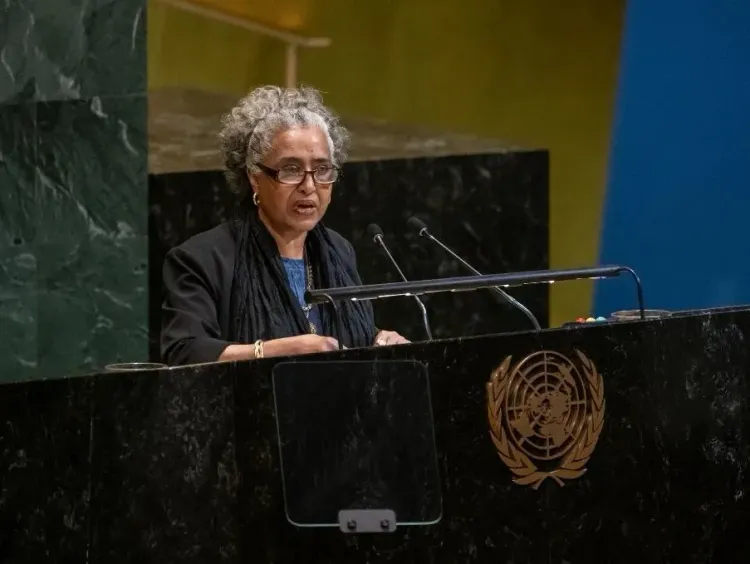What Does the UN General Assembly's Declaration of December 4 Mean for International Relations?

Synopsis
Key Takeaways
- The UN has declared December 4 as an International Day.
- The aim is to combat unilateral coercive measures.
- Developing countries are particularly affected by these measures.
- The resolution encourages international solidarity.
- A plenary meeting will be held annually starting in 2025.
United Nations, June 17 (NationPress) - The General Assembly has officially endorsed a resolution recognizing December 4 as the International Day Against Unilateral Coercive Measures. This significant declaration aims to raise awareness and foster international cooperation in countering the negative impacts of unilateral actions that do not align with international law.
The resolution emphasizes that nations should avoid imposing any unilateral economic, financial, or trade measures that could hinder the economic and social progress of others, especially in developing countries, as reported by the Xinhua news agency.
It is believed that establishing this day will further ongoing initiatives to highlight the harmful effects of such measures and encourage solidarity among nations to tackle these challenges.
The resolution received support from 116 countries, while 51 opposed it, with six abstentions. Notably, several countries from the Global North, such as the EU nations, Australia, Britain, Canada, Japan, and the United States, voted against the resolution.
Additionally, the resolution tasks the UN Secretary-General with organizing activities to commemorate this day and promote awareness about the adverse effects of unilateral coercive measures that violate international law.
All UN member states, observers, various organizations, and civil society are encouraged to recognize this day and raise awareness about the detrimental effects of unilateral measures, particularly on developing nations.
Starting in 2025, the resolution also directs the President of the General Assembly to hold an informal plenary meeting annually to commemorate and promote the International Day.









